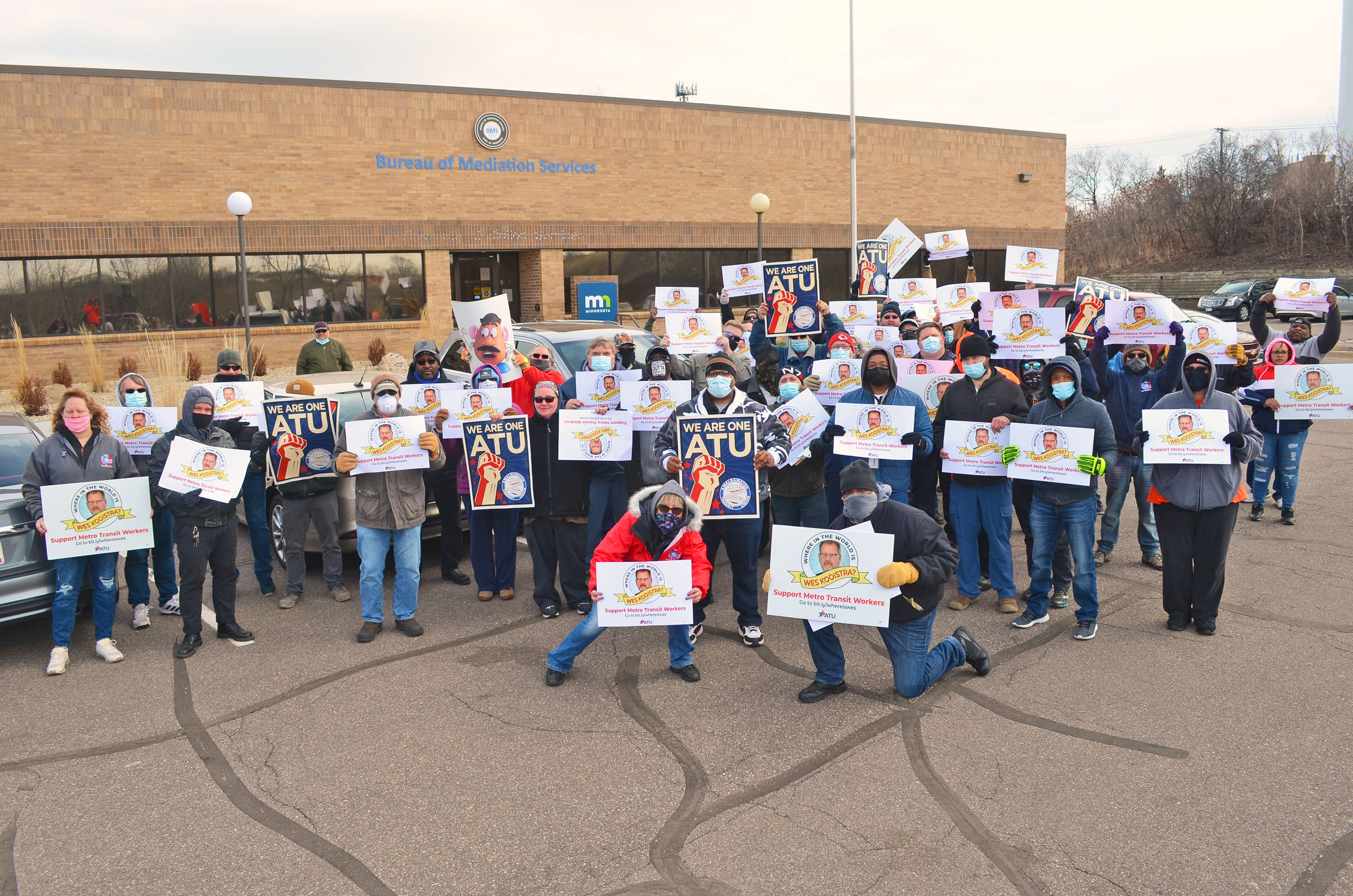
Members of ATU Local 1005 gather outside contract talks with Metro Transit.

Share
Metro Transit bosses got a good look today at the drivers, mechanics and cleaning workers who have kept Twin Cities buses and trains running during the COVID-19 pandemic, while the agency’s administrators have worked mostly from home.
Transit workers staged a daylong demonstration outside the Bureau of Mediation Services in St. Paul, where their union resumed contract negotiations with Metro Transit this week, hoping to put a human face on their fight for hazard pay, safety protections and respect.
Union members were there when bargaining began this morning. Over 50 members were still there around 3 p.m. And the union plans to be back tomorrow when talks continue.
“It seems like we don’t get anywhere with Metro Transit unless we annoy them,” Amalgamated Transit Union Local 1005 President Ryan Timlin said during a break from bargaining. “So here we are.”
Local 1005 represents over 2,300 Metro Transit workers in talks with Metro Transit. The two sides agreed to a temporary extension of their previous agreement, which expired Aug. 1, 2020, as negotiations continue.
But frustration with the agency’s plodding approach at the bargaining table – while transit workers continue to risk exposure to the virus – is at a tipping point among union members, bus operator Janea Scott said.
“We have put our families and our friends and ourselves at risk during COVID,” Scott said. “I feel like Metro Transit and the Met Council really don’t care about people like me out here working every day.”
ATU members voted overwhelmingly in September to authorize their bargaining team to call a strike. Since then, they have been pushing Gov. Tim Walz and the Metropolitan Council, which oversees Metro Transit, for answers about how the agency’s COVID-relief windfall is being used to protect frontline workers.
Timlin struck an optimistic tone today. He noted that management finally seemed serious about discussing union members’ workplace safety proposals, which would address access to personal protective equipment and establish protocols to protect workers from biohazards and blood-borne pathogens.
At the demonstration in St. Paul, workers who clean Metro Transit’s stations said they have seen an increasing number of unhoused people taking shelter there during the pandemic. In addition to safety fears, janitors expressed concerns about health risks they face while cleaning up people’s trash and bodily fluids.
“Our buses and facilities are like incubators for disease right now,” Scott said. “At the end of the day, we want safety, we want to be compensated and we want the same respectful treatment management would expect.”

